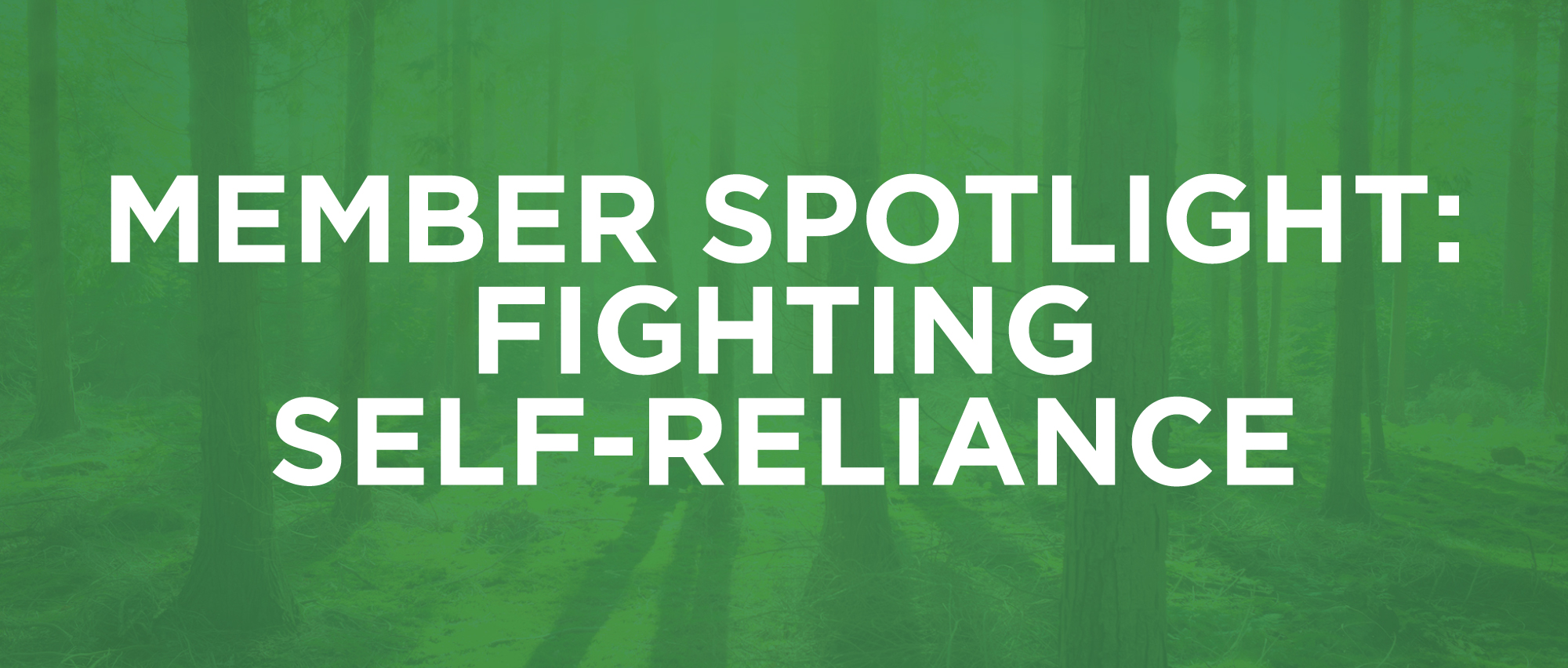This week in our Personal Liturgy series, we continued to explore the spiritual practice of prayer as a tool to fight self-reliance. We primarily focused on one of the biggest hindrances to and realities of prayer: disappointment.
Ask, and it will be given to you; seek, and you will find; knock, and it will be opened to you. For everyone who asks receives, and the one who seeks finds, and to the one who knocks it will be opened. Or which one of you, if his son asks him for bread, will give him a stone? Or if he asks for a fish, will give him a serpent? If you then, who are evil, know how to give good gifts to your children, how much more will your Father who is in heaven give good things to those who ask him!
- Matthew 7:7-11
And he told them a parable to the effect that they ought always to pray and not lose heart. He said, “In a certain city there was a judge who neither feared God nor respected man. And there was a widow in that city who kept coming to him and saying, ‘Give me justice against my adversary.’ For a while he refused, but afterward he said to himself, ‘Though I neither fear God nor respect man, yet because this widow keeps bothering me, I will give her justice, so that she will not beat me down by her continual coming.’” And the Lord said, “Hear what the unrighteous judge says. And will not God give justice to his elect, who cry to him day and night? Will he delay long over them? I tell you, he will give justice to them speedily. Nevertheless, when the Son of Man comes, will he find faith on earth?”
- Luke 18:1-8
In each of these passages, God’s goodness is the prompt to pray. Jesus shows us that His Goodness makes us want to pray and be persistent in our asking, seeking, and knocking. He is our good, heavenly Father, and we are to go to Him like children, incessantly asking for things.
Our confidence in God’s goodness is part of the foundation on which we build our prayer life.
Which means that if our confidence in God’s goodness wavers, there are going to be problems.
This is why disappointment is such a big deal. When we pray consistently for something good and God doesn’t grant our prayers - it can feel like a cosmic betrayal. We can end up feeling angry, hurt, confused, and like God owed us.
In these moments of disappointment, we’re all asking: Is God good? Does He really love us? Should we really trust Him?
So the critical question becomes, on what basis does God prove His goodness to us? And do we get to decide that basis or does God get to decide?
The Bible answers these questions definitively:
But God shows his love for us in that while we were still sinners, Christ died for us.
- Romans 5:8
This is how we know what love is: Jesus Christ laid down his life for us.
- 1 John 3:16
God is not on trial. We are not the judge. Our job is not to keep coming up with standards and judging God by them. We know what love is, — we know what goodness is — based on what God has done for us through the cross. In the cross, He has accomplished an eternal salvation for us and His goodness towards us is no longer on trial.
However, we functionally live as though the jury is still out on God. We feel a weight of disappointment when things do not go our way. Oftentimes, that disappointment gets directed towards God, rather than filtered through the cross.
When we don’t filter our disappointments through the cross, we begin to lower our expectations and requests. We don’t want to get our hopes up when we pray because we don't want to get hurt again. But as Christians, we are called to hope - not guard against hope!
Praise be to the God and Father of our Lord Jesus Christ! In his great mercy he has given us new birth into a living hope through the resurrection of Jesus Christ from the dead.
- 1 Peter 1:3
The LORD delights in those who fear him, who put their hope in his unfailing love.
- Psalm 147:11
Jesus, in both Matthew 7 and Luke 18 is in effect, saying, “Get your hopes up! Go to God trusting in His goodness. Expect God to care and respond.”
So what do we do with our disappointment and how do we remain hopeful? We confess, repent, and pray to God about our disappointment. The following questions are to help us process our disappointments and our view of God’s goodness. Boldly and incessantly pray to our good, heavenly Father.
- In what ways are you disappointed with God?
- In what ways are you most tempted to measure God's goodness outside of the cross?
- What do you need/want God to do?
Adapted from Every Moment Holy by Douglas McKelvey. Called “death of a dream.”
O Christ, in whom the final fulfillment of all hope is held secure,
I bring to you now the weathered fragments of my former dreams,
the broken pieces of my expectations.
What I wanted has not come to pass.
I invested my hopes in desires that returned only sorrow and frustration.
In my head I know that you are sovereign even over this -
over my tears, my confusion, and my disappointment.
But I still feel, in this moment, as if I have been abandoned,
as if you do not care that these hopes have collapsed.
And yet I know this is not so.
You are the sovereign of my sorrow.
You apprehend a wider sweep with wiser eyes than mine.
My history bears the fingerprints of grace.
You were always faithful,
though I could not always trace quick evidence of your presence in my pain,
yet did you remain at work.
So let me remain tender now, to how you would teach me.
My disappointments reveal so much about my own agenda for my life,
and the ways I quietly demand that it should play out:
free of conflict, free of pain, free of want.
Your bigger purpose has always been for my greatest good,
that I would be fashioned into a more fit vessel for the indwelling of your Spirit,
and molded into a more compassionate emissary of your coming Kingdom.
And you, in love, will use all means to shape my heart into those perfect forms.
So let this disappointment do its work.
Let me listen to its holy whisper,
that I might embrace the better dreams you dream
for me, and for your people,
and for your kingdom, and for your creation.
Let me join myself to these,
investing all hope that will never come undone
or betray those who place their trust in it.
Teach me to hope, O Lord,
always and only in you.
You are the King of my collapse.
You answer not what I demand,
but what I do not even know to ask.
Here in the ruins of my wrecked expectation,
let me make this best confession:
Not my dreams, O Lord,
not my dreams,
but yours, be done.
Amen.




![W14]_SR_PL.jpg](https://images.squarespace-cdn.com/content/v1/559abcdae4b078c942e5c735/1525095866750-JX3O5SFQ0DPNGLF9F4IP/W14%5D_SR_PL.jpg)
















